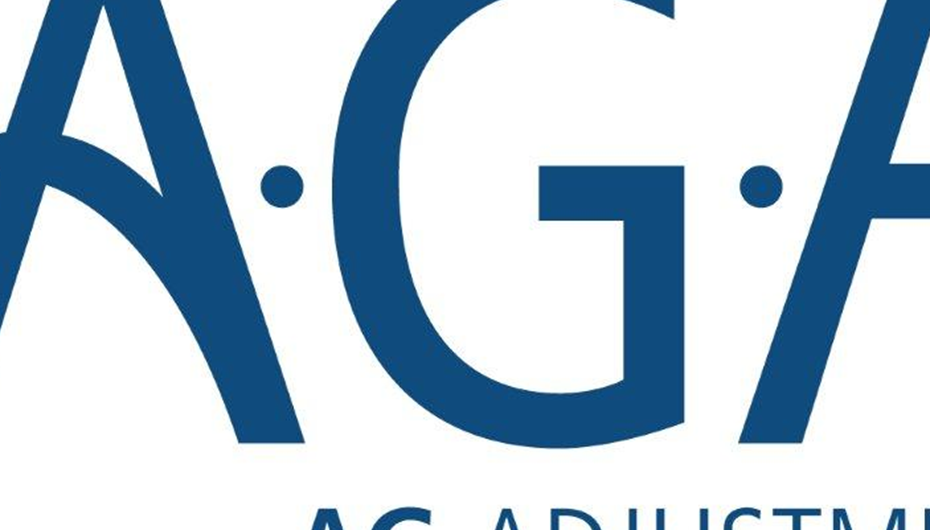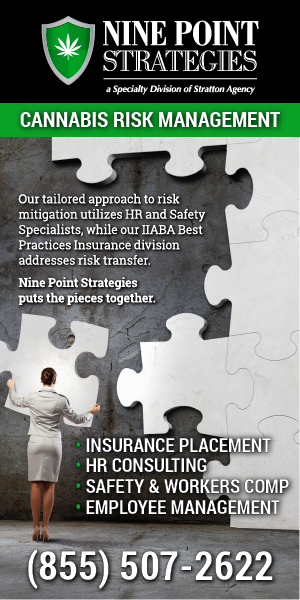INTRODUCTION
According to Forbes, “the legal cannabis market was worth an estimated $7.2 billion in 2016 and is projected to grow at a compound annual rate of 17%. Medical marijuana sales are projected to grow from $4.7 billion in 2016 to $13.3 billion in 2020. Adult recreational sales are estimated to jump from $2.6 billion in 2016 to $11.2 billion by 2020.” These estimates, we believe, assume that the banking system will begin treating cannabis businesses like almost every other business and make bank credit available. When this happens, as we are already seeing in the California market, cannabis related business will no longer be primarily operating on a cash basis. You will be extending trade credit on about 90% of your sales and once you reach a certain level of annual revenue, you will need to develop a Credit & Collection Department that will help you manage the second largest asset on your balance sheet - your accounts receivable.
Your emerging business has the potential to grow significantly, but only if you can implement the operational infrastructure and financial controls that are necessary to support your growth. If you, operationally, can’t keep up with your growth you won’t be able to provide the necessary level of customer service and your business may very well fail. Additionally, if you, do not manage the financial aspects of your business by applying best practices that help you manage and control credit risk, your business is also in danger of failing. Your emerging cannabis business needs to start planning now to meet its future demand and the first step is implementing an Accounts Receivable / Credit & Collection Department. This department will manage the entire order to cash process and ensure that credit risk is evaluated properly and that cash flow is optimized.
IMPLEMENTING AN ACCOUNTS RECEIVABLE / CREDIT & COLLECTION DEPARTMENT
For the purposes of this article we will assume that you already have implemented a basic account receivable (AR) system installed (QuickBooks, perhaps). As your business grows the AR system will probably need to be enhanced, but the more important problem that needs to be initially addressed is controlling your credit risk. This means you need to set up a Accounts Receivable / Credit & Collection Department and hire a Credit & Collection Manager who will be responsible for managing the department.
What Is the Credit & Collection Manager’s Job?
The Credit & Collection Manager will be responsible for the entire credit granting process, including developing and consistently applying the company’s credit policy as well as managing and collecting the accounts receivable. The Credit & Collection Manager will periodically review the credit status of existing customers, and be responsible for evaluating the credit worthiness of potential customers. The net result will be increased sales, fewer bad debts, and an increased bottom line. Here are the key functions the Credit & Collection Manager will control.
A. Developing a Trade Credit Policy
The first step in extending credit is to develop a Trade Credit Policy that defines how you will work with your customers. If we assume you have been operating primarily on a cash basis you are not likely to be credit savvy. It will be the newly hired Credit & Collection Manager’s first job to develop a Trade Credit Policy that lays out how the company will manage its credit and collection process and evaluate credit risk. It is management’s job to understand, review and accept the new credit policy. The new credit policy is going to seriously affect the way the company does business and it is important that management understand the consequences of moving from an unstructured environment to a professionally run business. For a detailed discussion of credit policy objectives please our article published in MG Magazine last year called Trade Credit in the Cannabis Market (https://mgretailer.com/trade-credit-in-the-cannabis-market/).
B. Creating a Credit Application
After your Trade Credit Policy has been accepted the Credit & Collection Manager’s next job is to create a Credit Application. The Credit Application is one of the primary tools available for protecting your company and controlling credit risk when extending trade credit to your customers. A Credit Application gives you basic information about your customer’s and is essentially a contract between you and your customers business and provides measures of protection that will increase the ultimate collectability of an account if the customer doesn’t pay. Even customers who are paying COD should fill out a Credit Application. For a detailed discussion of the importance of a Credit Application please see our article last year in MG Magazine, The Credit Application (https://mgretailer.com/the-credit-application/).
When developing your Credit Application be sure that all of the fields in your application are on the master customer file in your AR system. This may require you to add some additional fields to your existing software, but if you’re asking your customer for it, it should be important enough to store in the software that helps manage your business. It is a combination of the data in your AR files plus the data in the customer files that will allow you to analyze your customer’s history and make more informed decisions about credit risk.
C. Interfacing with the Sales Department
A Credit & Collection Manager does not operate in a vacuum. It’s their responsibility to interface with sales personnel and communicate credit decisions as quickly as possible for both existing and, for new customers. If credit is not evaluated on a timely basis your business will suffer.
D. Collecting the Accounts Receivable
Once you are extending credit you will have accounts receivable which need to be managed. In corporate America, the accounts receivable is usually the largest asset on a company’s balance sheet and therefore, someone needs to pay close attention to it. One of the major roles of a Credit & Collection Manager is to make sure that all the customers on credit are paying within their terms. If they are not, the manager should be aggressively trying to contact them to convince them to pay the overdue amount so that they can continue to be a customer.
E. Managing Relations with Collection Agencies
No matter how proficient the Credit & Collection Manager is, they are not going to collect all of the monies due your company when they are due. Some accounts will become seriously past due and you’ll need to employ the services of a collection agency to have any chance of collecting any of the money owed. The Credit & Collection Manager will be responsible for evaluating and employing the right agency for your business and once an agency is employed, the Credit & Collection Manager will be responsible for evaluating their performance and making sure that your company is receiving the quality of service required to maximize your cash flow.
F. Managing Relations with Credit Reporting Agencies
Most credit decisions can not be made without credit related data on the potential customer. The leading commercial credit reporting agencies Cortera, Experian, Dun & Bradstreet and Equifax are a necessary data sources for helping evaluate new applicants for credit and for providing additional credit information on existing customers. Only one of the leading agencies, Cortera (www.cortera.com), has developed a focus on the cannabis market and now has a database of more than 15,000 cannabis related business who they have credit reports with credit scores on. Determining how much credit, to initially extend, is a major responsibility of the Credit & Collection Manager and information is needed to help make that decision. The Credit Application is the primary source of this information; however, this information needs to be verified and the information that can be provided by an external credit reporting agency can do just that. There is a cost to these services and some are much more expensive than others and it is important that the cost of external information be kept as low as possible. The Credit & Collection Manager can earn their salary just by developing and maintaining good relations with credit reporting agency.
G. Keeping the Corporate Credit Policy Current
The corporate credit policy should not be a static document. Business and the economy are dynamic processes and the corporate credit policy has to stay current. It is the Credit & Collection Manager’s responsibility to make sure the credit policy reflects the current sales environment.
H. Keeping Customer Credit Files Current
Your company’s customer credit files should contain all the information about your company’s interaction with every customer. To help you with this record keeping function, there are many applications available that are designed just for this purpose. The Credit & Collection Manager is responsible for evaluating the various system alternatives and making sure that once a system is installed it is properly used and maintained.
I. Evaluating Credit Risk for New and Existing Customer’s
The Credit & Collection Manager is the company’s risk manager. Your customer’s ability to pay will vary over time. To maximize a company’s bottom line, you need to increase the credit available to low risk customers and reduce the credit available to higher risk customers. Credit risk evaluation is an ongoing process. It is the Credit & Collection Manager’s responsibility to continuously review customer activity and advise the sales force when a customer can be given additional credit as well as advise them when one of their customers is becoming a problem so that remedial action can be taken before the customer must be put on credit hold.
If you have properly evaluated your customers’ credit risk, most of your accounts will not become collection problems. However, no credit risk evaluation system is perfect and even the most sophisticated companies have customers that don’t pay. As a company that has just started a formal credit & collection department what is the best approach to take for evaluating for new and existing customers?
· New Applicant Credit Risk Evaluation
Every new customer applying for credit terms should have a through credit review done prior to the extension of credit. In all cases, credit managers should utilize at least the generic credit bureau scores, credit bureau data and best practice credit scorecards from credit bureaus to help them with three things:
A. Understanding the health of the company from analyzing the report
B. An Approved/Review/Declined recommendation from the credit bureau based on the information they have, which includes the experiences of other suppliers to the customer
C. The credit bureau’s recommended credit limit.
For higher volume and/or higher dollar transactions, you’re probably further along the credit sophistication curve. In these cases, consider modifying the bureau’s best practice scorecard to tune it to your needs and experiences. Rarely does a company go to the lengths of creating and maintaining their own statistical score. You can get the benefits of tailoring to your environment by adjusting the variables and weightings in the scorecard.
As Cortera is the only credit bureau that has credit reports and scores specifically on cannabis related companies, we are attaching a sample Cortera Decisions & Deep Dive Credit Report in Appendix A. This is a credit report that makes its simple to perform a credit review for either a part-time or sophisticated credit department.
· For Existing Account Evaluation
Best practices say that you should be reviewing the credit worthiness of existing customers every month to make sure your credit limits are appropriate. You want to make sure they are not too tight, or you might force your customer to buy from a competitor, but not too loose where you put your company in high-risk situations.
This is done in one of two ways;
A. If you have a low volume of customers, you should run new credit decisions and credit reports on your largest customers each month. If today’s decision isn’t “approved” or if the recommended credit limit is lower than your current credit limit with the customer, you should review the limit.
B. For higher volumes of customers, you might run credit decisions with batch appends each month and apply the same thinking – if the recommended credit limit is lower than the one you have in place, consider tightening it. On the other hand, if their credit health has improved and a higher credit limit is suggested, consider raising the credit limit and using it as an upsell conversation with the customer.
No matter how you do it or what data you use, once you are extending credit you will get burnt big time if you do not perform proper credit evaluation of both new and existing customers.
D. Monitoring Customers Deductions & Chargebacks
A deduction or chargeback is a credit that your customer takes on an outstanding invoice without your approval. Some are justified, some are not. It is the Credit & Collection Manager’s responsibility to review customer deductions & chargeback and make sure that they are justified and collect them if not.
E. Handling Customer Disputes
There will be many times when customers will not pay their bill due to a dispute. The dispute can be over multiple areas including billing, pricing, customer service, quality of product, issues with a sales rep, could be just about anything and it could be valid or it could be just an excuse not to pay. The Credit & Collection Manager is the person who must resolve disputes and make sure pay what they owe.
F. Communicating with Management
In a small company, communication is vital. It is the Credit & Collection Manager’s responsibility to make sure that management is aware of how their company is doing. Therefore, developing a set of management reports that management will look at is important. The Credit & Collection Manager needs to sit down with management and find out what they feel they need to know about how their company is operating, and then deliver these reports on a regular basis.
Credit & Collection Manager’s Previous Experience
To do the job described above, you need an individual with a certain skill set. However, aside from previous experience personal chemistry is important. No matter how qualified an applicant is, if management does not feel comfortable with them, it will not go well. So, aside from the following job requirements, be sure the individual you hire is somebody both you and your customers can work with. Some basic qualifications are:
· Strong computer skills – Aside from knowledge of basic packages (Word, Excel, etc.) ability to install and integrate credit and accounting applications
· Degree in accounting, finance or a related field
· At least five years’ experience in credit related functions
· Experience with various credit reporting agencies
· Experience with personal guarantees
· Able to communicate effectively both in writing and in person
· Good management skills
· Good interpersonal skills
Developing A Collection Strategy to Manage Your Accounts Receivable
No matter how good you are in evaluating customer credit, some accounts that you have extended credit to will not pay you on time and others will not pay you at all. You need to be prepared for this eventuality and have a policy in place to handle it. Collecting your accounts receivable as quickly as possible is important for your financial success, so having a documented collection strategy is a major requirement. The two critical factors in such a strategy are: (1) When should you consider an account severely delinquent, and (2) What are you going to do about it when it occurs?
Here are some specific customer account characteristics that indicate you may have a collection problem:
· Your terms are net 30 and the account is over 90 days past due.
· You have called the account several times and they haven’t returned your calls. Additionally, they haven’t responded to your emails or your collection letters.
· A review of their AR shows very erratic purchasing activity.
· The account has stopped buying.
· All recent payments, when they have paid you, have been from different banks.
· You get negative information from an independent credit reporting service or you belong to a trade group and one of the members provides you with negative information on the account.
· The account refuses to settle certain disputes which you feel should be easily settled.
Typically, the Credit & Collection Department is responsible for performing your internal collection activity. This can mean collection letters/emails supplemented with telephone collection calls. For you to maximize your internal collection effort, sales need to work with credit. When there is a problem with one of their customers they should help in collecting past due monies owed. Additionally, if the situation escalates and you’re still not getting paid, the sales rep who handles the account should visit the customer. Perhaps payment arrangements can be made. In any event, if the customer is seriously past due, they are not responding to your calls, and communication attempts fail, there should be no further shipments until acceptable payment arrangements are in place.
It’s the responsibility of the Credit & Collection Department to determine if they have exhausted all their internal collection efforts and what to do once they have. Most uncollectable accounts are still operating businesses, and if they are refusing to pay it is time to bring in a 3rd party collection agency (called a 3rd because they were not a party to the original transaction), or simply “collection agency” to help in your collection efforts. Collection statistics indicate that once an account goes over 90 days past due, to maximize the probability of collection, it should be turned over to a collection agency as the probability of collecting in-house significantly decreases once your customer is 90 days or more past due.
Using a 3rd Party Collection Agency?
There are at least three good reasons to use a 3rd party collection agency to help collect past due accounts:
· A collection agency will collect from accounts that you could not. Your past due accounts won’t talk to you but they will talk to an agency or the collection agency’s attorney. The agency knows that to collect they must make contact with the account and they won’t stop trying until they do. A good collection agency will make 10 to 15 attempts to reach your former customer in the first 30 to 45 days they have the file. This is typically about 3 times the number of attempts your internal staff will make. As their fee is based on what they collect an agency will be more persistent and assertive than your internal collectors are at this stage of the customer lifecycle. Just remember this, collection agencies don’t get paid unless they collect your money and collection agencies do not want to work for free.
· Using an agency frees up the time and resources needed to manage your current active business. Collecting money is very time consuming. You need to send letters, emails, possibly make customer visits and make phone calls, lots of phone calls. This takes time away from the things you and your employees need to do to manage and run your business on a day to day basis.
· A collection agency utilizes technology that you do not have. This makes them far more proficient at collecting money than their clients. They possess advanced tools that help them find and contact debtors. This technology is costly and unless you are in the collection business you won’t have it. Additionally, their personnel are professional debt collectors. That is what they do and
The Next Step
As your business grows, the number of sales transactions may eventually overwhelm your existing basic system and your collection operation. This is a problem that many growing businesses have had to deal with and a wide variety of computer system suppliers have developed various solutions to the problem. They call their solution and Order to Cash System (OTC). Essentially, it’s a set of integrated programs that allow a company to efficiently manage their cash flow from the time they take the order to the time they receive the payment. Fully integrating credit, collections, dispute management, billing and invoicing and cash application eliminates the possibility of human error and can cut days or weeks off the order to cash process. A typical OTC system consists of the following modules:
· Customer master file
· Order entry (creation of order / booking of order)
· Order fulfillment (order is physically picked and entered into the computer system)
· Distribution (delivered to customer)
· Invoicing
· Customer payments
· Cash application
· Deductions (If invoice short paid by customer)
· Collection (dunning letters, etc.)
Lack of cash control has put many companies into bankruptcy. You cannot let your growth bring your business to a standstill if orders are not quickly paid. By prioritizing and refining the order to cash system, you are setting your company up for long-term success.
Another Option - Outsourcing the Credit & Collection Process
Choosing the right OTC system and implementing it is no mean task. And, while your time is being taken up by things you are not particularly knowledgeable about, your business may suffer from your lack of attention.
An alternative that many growing companies have found to be the right choice for their business is to turn the OTC process over to an expert that has a combination of software and expert personnel, thereby allowing you to focus your attention on marketing and sales, and not have to worry about the day to day OTC operation. The application service provider (ASP) you need will be able to provide you with these services:
· Credit management
· Order management
· Customer billing
· Customer payments & deductions
· Accounts receivable management
· Collections & disputes management
· Bad debt, reserves and write-offs
· Suite of management reports to help you more efficiently run your business
The right ASP may be able to accomplish the following:
· Reduce the number of overdue accounts
· Reduce time spent on accounts receivable and cash application
· Reduce tine spent on collections and customer service
· Reduce customer disputes and improve customer service by rapid dispute resolution
· More sophisticated management reporting
CONCLUSION
We have tried to cover a wide range of topics in this white paper that would have an impact on a growing cannabis related company. The most important thing to remember is that for you to grow your emerging cannabis business and guarantee its profitability, the business needs to be under your control. In particular, your revenue stream. You need basic systems (Order Entry, AR and Billing) which can provide the information required by the Credit & Collection Department to allow them to control your cash flow. These are the prerequisite steps necessary to guarantee you a long-term profitable future. Down the road, as your business grows and prospers, you can consider additional alternatives (OTC or outsourcing) to help you streamline your operations. I would add something here about how important it is to be willing to incur this cost early on to fuel growth in the future.
If you have any questions about anything in this white paper you can contact Sam Fensterstock the SVP of AG Adjustments at samf@agaltd.com.
Finance and Insurance Committee Roster
Patrick McManamon – Chair, Cannasure
Ian Stewart - Vice Chair,Wilson Elser
Mike Aberle - Next Wave Insurance
John Balian - Wood Gutmann & Bogart Insurance Brokers
Chris Casseses - Faces Human Capital Management
Sam Fensterstock - AG Adjustments
Jason Horst - Horst Legal Counsel
Marco Materazzi Emerge Law Group
James Nelson - New Growth Insurance
Dean Rocco - Wilson Elser
Jeffrey Rosen - CBZ Insurance
Jeffrey Samuels - Alpharoot
Jamie Shetzer - Venbrook Insurance Services
Hailey Stephenson- Norick Risk Funding Concepts
Jeffrey Ward- Next Wave Insurance
Register for FREE to comment or continue reading this article. Already registered? Login here.
0





